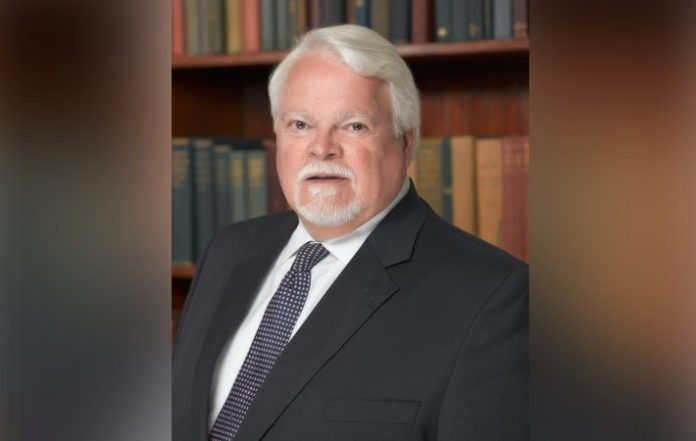MACON – The Phi Beta Kappa Society’s Zeta Chapter of Georgia at Mercer University will host the inaugural Malcolm Lester Phi Beta Kappa Lectures on Liberal Arts and Public Life April 5-6 in the Presidents Dining Room inside the University Center on the Macon campus.
The three-lecture series, which is free and open to the public, will take place in conjunction with the University’s annual Breakthroughs in Engagement, Arts and Research (BEAR) Day, an annual celebration of undergraduate and graduate student research and special projects.
The lectures are supported by a bequest from the late Dr. Malcolm Lester, a 1945 graduate of Mercer and former dean of the University’s College of Liberal Arts.
“Dr. Lester devoted his career to promoting the essential value of the liberal arts. He believed that an education grounded in critical thinking and broad learning prepared people to adapt to a dynamic workplace environment, to participate in democratic institutions, and to seek personal fulfillment and happiness,” said Dr. David A. Davis, secretary of Mercer’s chapter of Phi Beta Kappa and editor of the Lester Lecture Series. “His generous gift to endow the Lester Lectures demonstrates the depth of his convictions and his confidence in the value of a liberal arts education at Mercer.”
This year’s speaker will be Dr. John Churchill, former national secretary of the Phi Beta Kappa Society and retired dean and professor of philosophy at Hendrix College in Conway, Arkansas.
Dr. Churchill’s lectures on the theme “The Problem with Rules” will begin with “This Seems to Destroy Logic” April 5 at 11 a.m. His second lecture, “Oh Look! This Isn’t an Argument,” will take place April 5 at 6:30 p.m., followed by “What is the Shape of a Cat?” April 6 at 11 a.m.
“Dr. John Churchill shared Dr. Lester’s values, and as executive secretary and CEO of the Phi Beta Kappa Society, he advocated for the liberal arts, championed intellectual inquiry and directed the Society’s chapters nationwide. He is the ideal person to inaugurate the lectures,” added Dr. Davis.
In 2007, Dr. Lester made a gift for a lecture series on the liberal arts at Mercer once the University sheltered a chapter of the Phi Beta Kappa Society, the nation’s most prestigious academic honor society, which it did in 2016. Additionally, the lectures will be published by the University of Virginia Press, as requested by Dr. Lester, who earned his Ph.D. from U.Va.
Upon completing his doctoral studies, Dr. Lester returned to Mercer to teach history before being named dean of the College of Liberal Arts in 1955. In 1959, he left to join the faculty of Davidson College, where he taught for the next 30 years.
While at Davidson, Dr. Lester served as a Phi Beta Kappa senator and member of the Committee on Qualifications, which reviewed schools’ applications to shelter chapters of the society. He felt strongly that Mercer should shelter a chapter of Phi Beta Kappa, encouraged faculty to apply and left a generous endowment for a lecture series once the chapter was established.
His bequest states that “the income of such endowed fund shall be used to pay for the delivery of and publication of an annual oration to be delivered by a distinguished scholar at the annual initiation of members in course of Phi Beta Kappa.”
Dr. Churchill was born in Hector, Arkansas, and grew up in Little Rock. He attended Southwestern at Memphis, now Rhodes College, followed by the University of Oxford as a Rhodes Scholar, and Yale University, where he earned a Ph.D. in 1977.
In addition to serving on the faculty at Hendrix College, he was vice president for academic affairs and dean for 17 years. In 2001, he became national secretary of the Phi Beta Kappa Society in Washington, D.C., and served in that capacity for nearly 15 years.
Dr. Churchill lives in retirement with his wife, Jean, in Dickson, Tennessee. They have three adult children and seven grandchildren. In addition to continuing interest in liberal arts education and the work of Austrian-British philosopher Ludwig Wittgenstein, his interests include reading fiction, history and poetry.
“In these lectures, I will attempt to draw together strands that have fascinated me for decades – my conviction that liberal arts education is a good thing in more ways than we can easily say and my deep interest in Wittgenstein’s way of wrestling with philosophical issues,” said Dr. Churchill.










